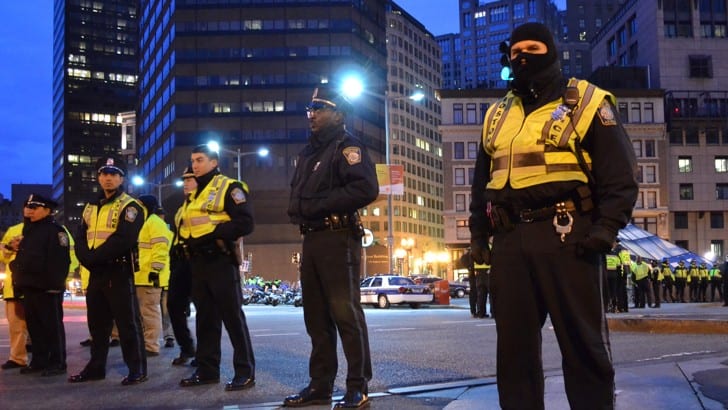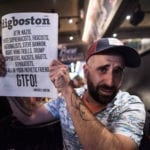
It’s not uncommon to hear cops and politicians cry about the negative attention that police allegedly get in the media. Take Boston Police Department Commissioner William Evans, who regularly whines about how good deeds done by officers go unnoticed while less flattering stories are pounced on.
Don’t kid yourselves. Having covered both the jacket and the media extensively in Greater Boston for more than a decade, I have on multiple occasions compared the number of positive articles about cops in a time frame with the number of negative ones in the same span. Upon inspection, the overwhelming amount of coverage is always about routine operations—police arrest a perp, restore order to an unruly environment, or maybe clean up the disaster left behind by some drunk and disorderly. I believe that those can more or less be considered positive stories that make cops look good, often rightfully so. But even if you don’t count any of those TV clips and articles, the good outweighs the bad whichever way you slice it. There are a lot more clips about cops volunteering with the youth and saving seniors than there are about the use of force and excessive overtime, and so in my career as a reporter and editor I have sought to expose first and applaud rarely. After all, departments spend hundreds of thousands, if not millions, of dollars on public relations each year. They can write their own press releases.
With that spirit, and in the interest of continuing to dump on the Boston police, I’ll take this opportunity to note the work of my former colleague, David S. Bernstein. In an investigative piece for Boston Magazine earlier this year titled “Boston is a Shooters’ Paradise,” he revealed that “out of 618 cases involving shooting victims” between January 2014 and September of last year, “92 were classified as homicides; of those, 14 had been cleared by arrest. The other 526 people who were shot survived; of those, only 20 cases had led to an arrest. The total arrest rate had declined from 8 percent in 2014 to 6 percent in 2015 to barely above one percent in the still-active 2016 calendar year.” To my point: You have probably heard much less about that abysmal clearance rate than you have about the heroics performed by or movies and books that are inspired by the BPD. Bernstein is among the most respected journalists covering Mass; still, his revelation was ignored by most major outlets, while Commissioner Evans, in response to the findings, said that there is nothing his department can do differently and blamed communities where violence takes place for their “lack of cooperation.”
On our part over the past couple of years, DigBoston and the Boston Institute for Nonprofit Journalism have shown how police and other authorities in Mass abuse power in a number of ways—from concealing the specs about how our new all-electronic tolling system works on the turnpike, to forming private SWAT teams that aren’t accountable to the public, to arresting motorists for no good reason, to using facial recognition software on every person who went to the first two Boston Calling festivals in 2013. You can say that we relentlessly impugn the fuzz, but I would argue that most others in the local media are too soft; what else could possibly explain how all the stories I just noted made a bigger splash in the national press than they did around here?
Before you write me off as a conspiracy nut, I invite readers to check out my claims. And those of Bernstein, activists including Jamarhl Crawford, and a handful of other diligent Greater Boston reporters and watchdogs as well. And when you’re reading the Dig—say, for example, an article like this week’s news piece in which agents of a private oil company are working side by side with state police to harass and arrest environmental protesters in Western Mass—remember that while our muckrakers spelunk and unravel despicable details, the lazy mainstream outlets that put law enforcement on a pedestal tend to ignore such damning stories altogether.
A Queens, NY native who came to New England in 2004 to earn his MA in journalism at Boston University, Chris Faraone is the editor and co-publisher of DigBoston and a co-founder of the Boston Institute for Nonprofit Journalism. He has published several books including 99 Nights with the 99 Percent, and has written liner notes for hip-hop gods including Cypress Hill, Pete Rock, Nas, and various members of the Wu-Tang Clan.

